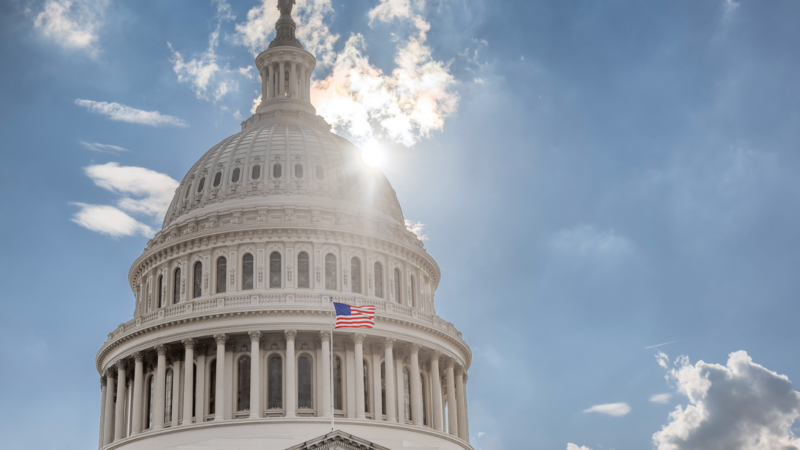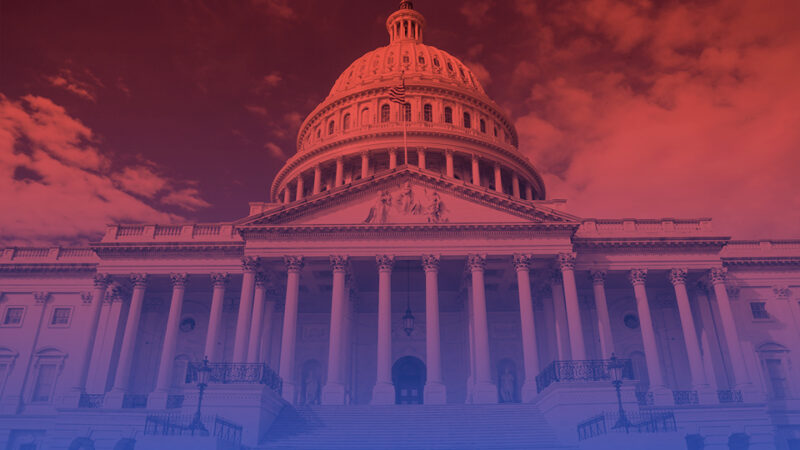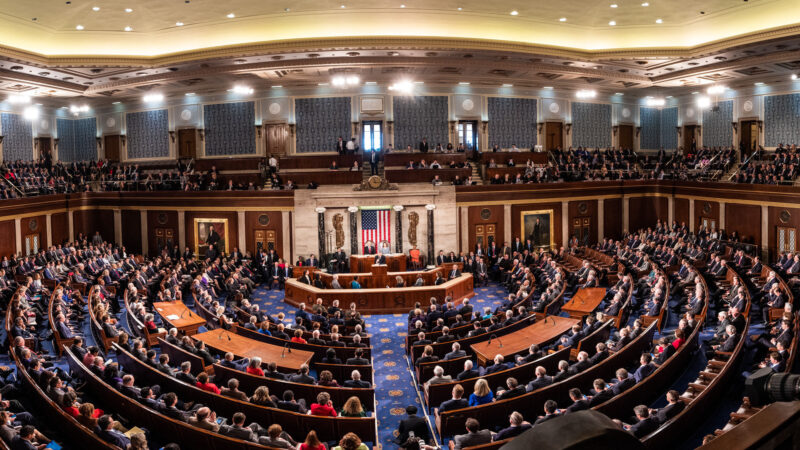Legislative Wins for Democracy in 2022
- January 4, 2023
The 117th Congress, which began with an unprecedented attack on the U.S. Capitol that personalized and deepened political divides, defied expectations by passing significant bipartisan democracy reforms. Even with serious continued shortcomings, above all on voting rights, this marks an important shift in momentum. For the first time in years, a departing Congress leaves American democracy in slightly better shape than it found it, especially with regards to safeguarding the will of voters and the peaceful transfer of power, and reigning in executive power abuses.
The following is an overview of the democracy reform legislation passed in the 117th Congress.
Presidential Election Reforms
- Electoral Count Reform Act. Congress passed the Electoral Count Reform Act as part of the Consolidated Appropriations Act of 2023. The bill updates the Electoral Count Act, providing much-needed clarity on the process of casting and counting electoral votes, striking a better balance between the roles of state and federal actors in that process, and eliminating many of the most concerning weaknesses in the law that were exploited during the last presidential election. This historic law will better protect the will of the voters and the peaceful transfer of power—a cornerstone of democracy.
- Presidential Transition Improvement Act. The appropriations bill also included reforms to the presidential transition process to ensure that a winning candidate can move forward on transition work even in the event of a close or contested election. The reforms, which were Title II of the Electoral Count Reform Act and Presidential Transition Improvement Act, set criteria for the General Services Administrator to determine the apparent winner of the presidential election. In the event there is no clear winner five days after the election, both major candidates would receive transition resources until the apparent winner is determined. Those resources include funding to pay transition staff, office space and access to briefings from agency officials throughout the federal government. Similar reforms had already passed the House as Title XI of the Protecting Our Democracy Act (H.R. 5314).
Legislative Guardrails Limiting Executive Power Abuses
- Apportionment Transparency. The Consolidated Appropriations Act of 2023 contains several provisions strengthening Congress’s power of the purse—the legislature’s constitutional authority over federal tax and spending policy. Apportionments are the legally binding documents that the Office of Management and Budget (OMB) uses to make Congressionally appropriated funds available to federal agencies. Agencies generally cannot spend appropriated funds until they receive an apportionment from OMB. Acting through OMB, Presidents have, at times, abused the apportionment authority. For example, when President Trump withheld Congressionally approved funds for Ukraine in the summer of 2019, he did so through a series of apportionments. Making apportionments public ensures that Congress, the press, and the people have access to the information they need to hold the President and OMB accountable. Last year Congress passed a law requiring OMB to post apportionments on a public website. Section 204 of the appropriations bill made that requirement and the website permanent. This resource will allow Congress, the press, and the public access they need to ensure neither the President nor OMB may abuse this power in secret.
- Impoundment Control Act Enforcement. By law, the Executive Branch is required to spend funds once they have been appropriated by Congress. Under the Impoundment Control Act (ICA) of 1974, neither the President nor executive agencies can unilaterally decide not to spend funds Congress has provided before they expire at the end of a fiscal year. Unfortunately, this important check on the Executive Branch’s discretion is poorly understood and weakly enforced. This appropriations bill, however, takes two steps to strengthen it. Section 749 of the Consolidated Appropriations Act of 2023 requires federal agencies to report to Congress if an agency may be at risk of impounding funds—that is, allowing federal funding to expire at the end of a fiscal year rather than being spent. Agencies must report if an apportionment either is not made in the required time period, conditions the availability of funds on further action, or may hinder the obligation of funds or execution of a program. And Section 748 of the Act requires the President or relevant agency head to report violations of the ICA to Congress, ensuring that legislators scrutinizing the Executive Branch get the information they need to conduct effective oversight.
- Case Act. Provisions of the National Defense Authorization Act update the Case Act, which creates a new set of transparency requirements around agreements between the executive branch and other countries. Under the Trump administration, the executive branch signed agreements with other countries, most notably in “Northern Triangle” countries as part of Trump’s immigration policy, without any congressional visibility or oversight.
Together, these provisions will strengthen Congress’s ability to identify abuses of executive power and oversee and assess executive branch compliance with budget and appropriations laws.
Inspector General Reforms
The National Defense Authorization Act for Fiscal Year 2023 contains several provisions (in Title LII) to improve the Inspector General system by protecting the independence of Inspectors General. These reforms are directly responsive to abuses of the Inspector General system under past administrations, particularly the Trump administration. Advocacy on both provisions was led by the Project on Government Oversight.
- Securing Inspector General Independence Act of 2022. (Title LII, Subtitle A) These reforms enhance notice to Congress when a president removes an Inspector General by requiring detailed and case-specific reasons for the removal, imposing limits to who can serve as an acting Inspector General in the event of a vacancy, and clarifying that a president cannot immediately put an Inspector General on administrative leave during the 30-day congressional notice period unless there is a good reason to do so that is also communicated to Congress. This directly addresses a series of Inspector General firings during the Trump administration and overlaps substantially with Title VII, Subtitle A of the Protecting Our Democracy Act.
- Title LII, Subtitle B requires congressional notification of the removal/change in status of an Inspector General. This is substantially similar to Title VII, Subtitle C of the Protecting Our Democracy Act.
- Title LXVI, Section 6609 includes clarifying language about what type of whistleblower disclosure qualifies as an “urgent concern” if the Inspector General for the Intelligence Community makes that determination. This directly addresses the Office of Legal Counsel opinion that was used to initially withhold from Congress the disclosure at the heart of the first impeachment.
Together, these provisions will help expose abuses of power and limit the ability of an administration to prevent those abuses from coming to light.
Related Content
Join Us.
Building a stronger, more resilient democracy is possible, but we can’t do it alone. Become part of the fight today.
Donate
Sign Up for Updates Sign Up for Updates
Explore Careers Explore Careers
How to Protect Democracy How to Protect Democracy


